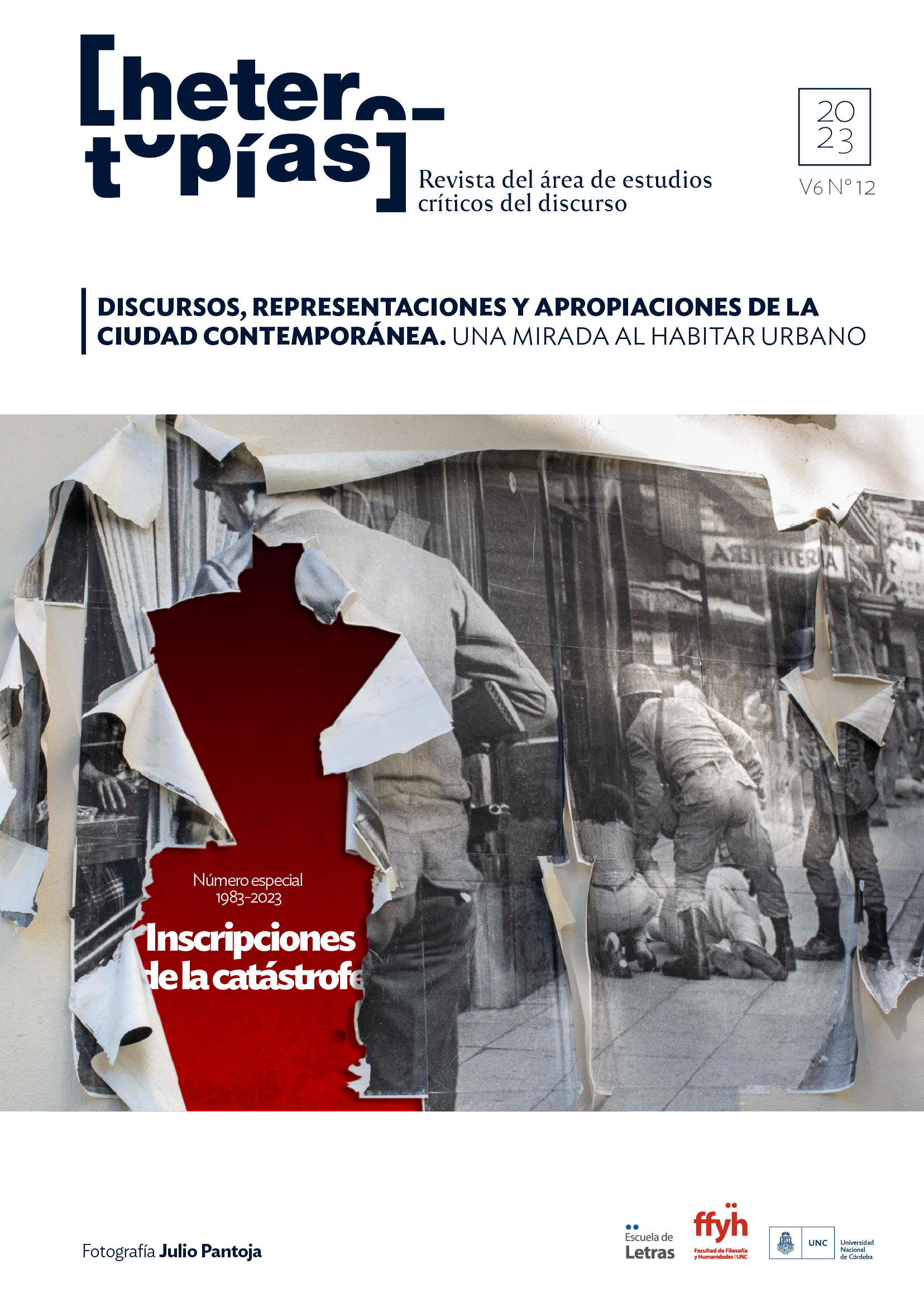Don't make me schizophrenic here! Exposed bodies / disciplined bodies from confinement
Main Article Content
Abstract
One of the most visible cultural effects that emerged during the isolation and the COVID-19 pandemic has been the hyperdigitization of daily life and the displacement of face-to-face encounters to its web mediation. Since the confinement, the networks and the screens have become the privileged scenario for artistic consumption, production and circulation. In the networks, at the same time, it was possible to see how the pandemic strengthened the multiplication of discourses linked to "well-being", "healthy living", "therapeutic cultures" or "mental health", articulated through the imperative of happiness, which, as Sara Ahmed (2019) points out, has become a new performance indicator in politics and the global economy. This discussion interests me as a framework to address the reading made by cartoonist and writer Robertita, on her Instagram and Instagram TV accounts (@soyrobertita and @benditoinstagram) during the months of Preventive and Mandatory Social Isolation in Argentina. On the one hand, in the feed, his "Pandemic Diary", written and drawn as a comic. And on the other, in their stories, the work of monitoring, editing and setting up public accounts of millenials focused on self-exposure in relation to hegemonic themes: self-help, mental health, obsession with the body and food, control and the psychologization of sexual life. From the fragility of confinement, making use of the home tools provided by the Internet, Robertita relieves these stories and reads them from the cutting and assembling of the mass culture heritage of the eighties and the return to democracy in Argentina. His ironic, critical and also affective gaze questions the scope that this eighties scene has today to think about limits, excesses, freedom and self-figuration; questions that seem to be reissued now under new disciplines.
Downloads
Article Details

This work is licensed under a Creative Commons Attribution-NonCommercial-ShareAlike 4.0 International License.
Those authors who have publications with this journal, accept the following terms: Those authors who have publications with this journal, accept the following terms:
a. The authors will keep their copyright and guarantee to the journal the right of first publication of their work, which will be simultaneously subject to the Creative Commons Attribution - Non-Commercial - Share Alike (by-nc-sa) Attribution License; no commercial use of the original work or any derivative works is allowed, the distribution of which must be done with a license equal to the one that regulates the original work.
b. Authors may adopt other non-exclusive license agreements for the distribution of the published version of the work (e.g., deposit it in an institutional telematic archive or publish it in a monographic volume) provided that the initial publication in this journal is indicated.
c. Authors are allowed and recommended to disseminate their work through the Internet (e.g. in institutional telematic archives or on their website) before and during the submission process, which may lead to interesting exchanges and increase the number of citations of the published work. (See The effect of open access).
How to Cite
References
Referencias
Ahmed, S. (2019). La promesa de la felicidad. Una crítica cultural al imperativo de la alegría. Buenos Aires: Caja Negra.
Bevacqua, M. (2020). Deformances. Destellos de una cartografía teatral desobediente. Buenos Aires: Libretto.
Dubatti, J. (1995). Batato Barea y el nuevo teatro argentino. Buenos Aires: Planeta.
Garbatzky, I. (2013). Los ochenta recienvivos. Poesía y performance en el Río de la Plata. Rosario: Beatriz Viterbo.
Groys, B. (2014). Volverse público. Buenos Aires: Caja Negra.
Jazmín Pastela [@jazminpastela]. (2020, 29 de abril). Me quedé pensando en esto hace un par de semanas y me pareció pertinente sentarme a pensar en el por qué… (Video).Instagram.https://www.instagram.com/tv/B_lPYpLg1hj/?igshid=aqxmo3udp3rw
Masotta, O. (2004). Los medios de información de masas y la categoría de ‘discontinuo’ en la estética contemporánea. En Longoni, A. (comp.). La revolución en el arte. Pop-art, happenings y arte de los medios en la década del sesenta (pp. 199-270). Buenos Aires: Edhasa.
Mavrakis, N.; Robles, S. (2020, 11 de junio). Zoom al robo de datos. Revista Crisis. Recuperado de: https://www.revistacrisis.com.ar/notas/zoom-al-robo-de-datos
Molloy, S. (1994). La política de la pose. En Ludmer, J. (comp.). Las culturas de fin de siglo en América Latina (pp. 128-138). Rosario: Beatriz Viterbo.
Robertita (2011). Loser. Buenos Aires: Interzona.
Robertita (2015). Winner. Rosario: Beatriz Viterbo.
Robertita (2020). Roomates. Rosario: Beatriz Viterbo.
Sakkal, D. (2020). Robertita, la artista que mezcla a Instagramers con Axl Rose y Alejandro Urdapilleta. Ponele.info. Recuperado de https://www.ponele.info/cultura/robertita-artista-mezcla-instagramers-axl-rose-urdapilleta/
Yago Blass, & Urdapilleta, A. (2021, 17 febrero). ARCHIVOS DE BATATO URDAPILLETA CRUDO hd [Archivo de vídeo]. Recuperado de https://www.youtube.com/watch?v=YiZnst9NAAY
